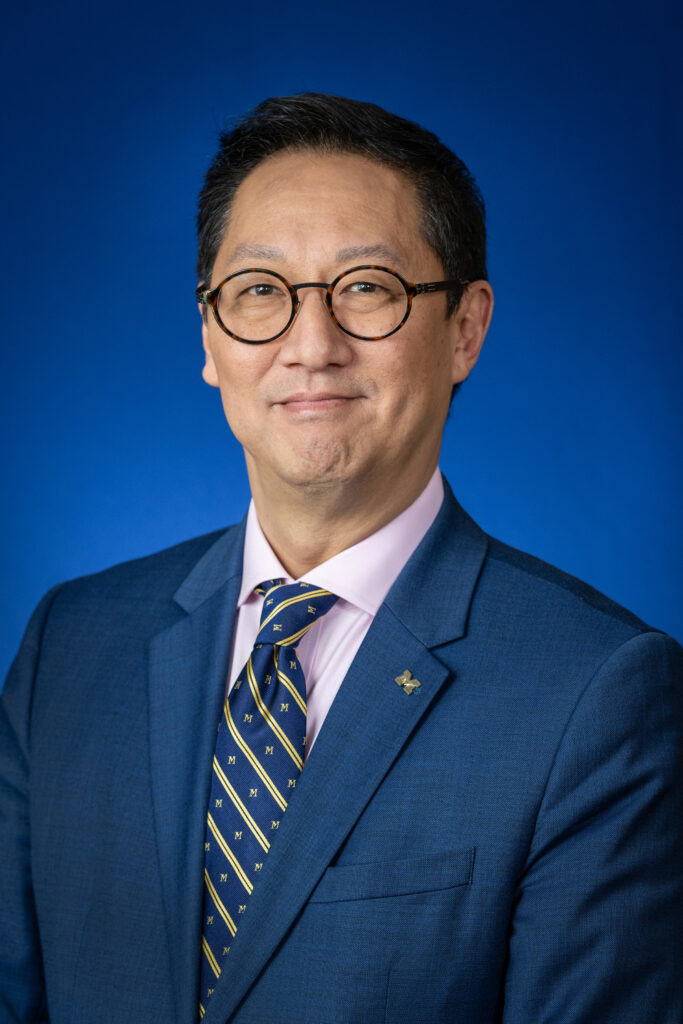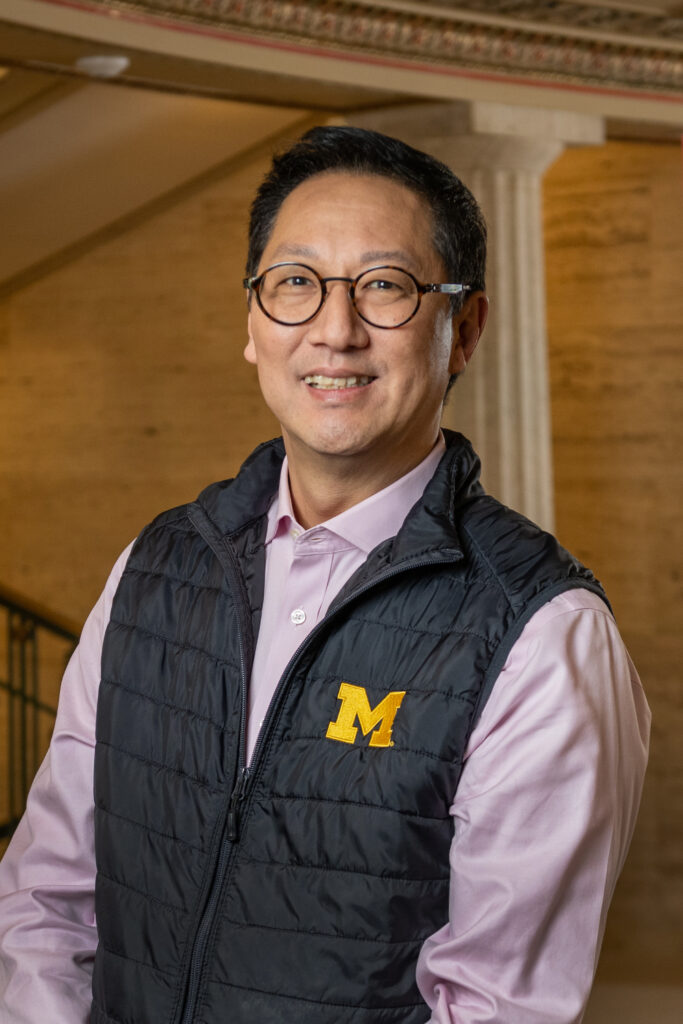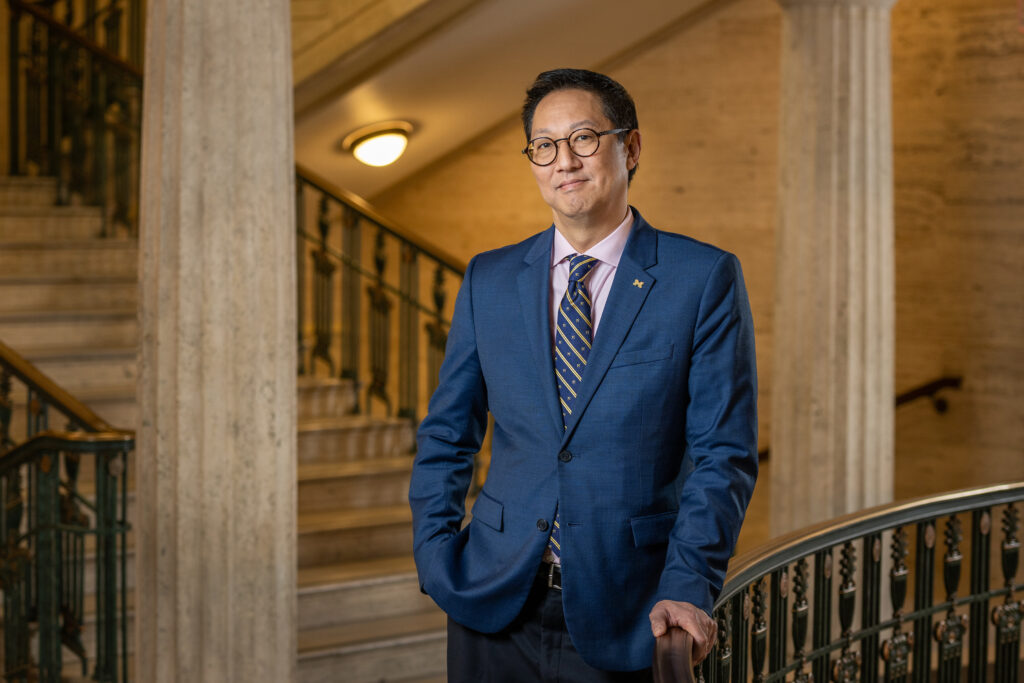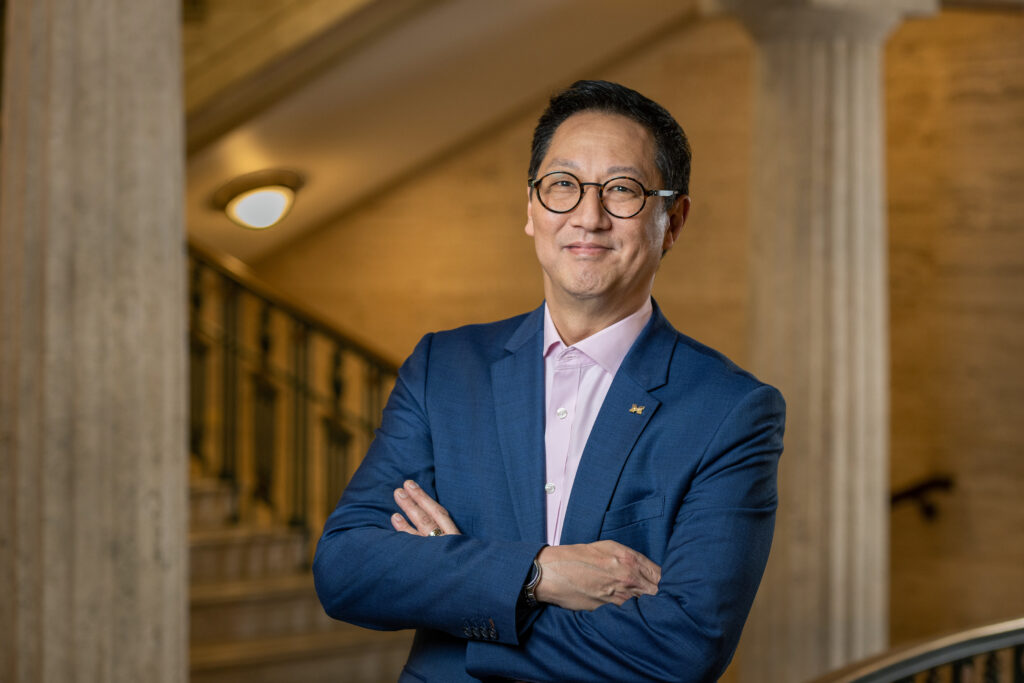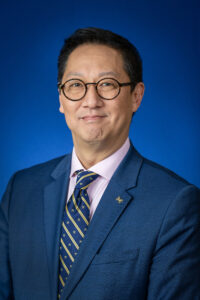
Santa J. Ono, Ph.D., is the 15th president of the University of Michigan. He began a five-year term on Oct. 14, 2022.
A recognized leader in higher education in the United States and Canada, President Ono is an experienced vision researcher whose pioneering work in experimental medicine focuses on the immune system and eye disease. At U-M he is professor of ophthalmology and visual sciences, and microbiology and immunology in the Medical School, and molecular, cellular and developmental biology in the College of Literature, Sciences and the Arts.
President Ono currently serves as the chair of the U-M Health Board, the chair of Fulbright Canada, the chair of the University Climate Change Coalition (UC3), and is an honorary Chairperson of the Japan America Society of Michigan and Southwestern Ontario as well as a member of the United States-Japan Foundation Board of Trustees. He also serves on a range of other boards including the Big Ten Council of Presidents and Chancellors, the American Association of Colleges and Universities, the American Council on Education, the Association of Public & Land-Grant Universities, the U7+ Alliance, the Council on Competitiveness, the University Musical Society, Terramera, the Detroit Economic Club, Business Leaders of Michigan, the Board of Trustees of the Chicago Symphony, the Detroit Regional Chamber, and the Gerald R. Ford Presidential Foundation Board of Trustees.
He has also been appointed by Michigan Governor Gretchen Whitmer to serve on the Executive Committee of Michigan Economic Development Corporation and the Growing Michigan Together Council.
He joined U-M from the University of British Columbia, where he served as president and vice chancellor since 2016.
While at UBC, he chaired the U15 Group of Canadian Research Universities and the Research Universities of British Columbia, and served on the board of Universities Canada. He also served on the steering committee of the Association of Pacific Rim Universities; Government of Canada’s Industry Advisory Ad Hoc Roundtable on COVID-19 Testing; and the boards of Fulbright Canada and Mitacs.
Prior to his appointment at UBC, he was president of the University of Cincinnati, where he also served as professor of pediatrics at Cincinnati Children’s Hospital Medical Center. While at the University of Cincinnati, he was appointed by Ohio Gov. John Kasich to lead the state’s Biopharmaceutical Task Force and to the Board of the Ohio Third Frontier, the state’s technology-based economic development program.
Dr. Ono has served as senior vice provost and deputy to the provost at Emory University. He also has taught at Johns Hopkins University, Harvard University and University College London.
He is a fellow of the American Association for the Advancement of Science, the Canadian Academy of Health Sciences, the National Academy of Inventors, USA and the Johns Hopkins Society of Scholars. In 2022, he was elected to the American Academy of Arts & Sciences.
He has advised national and regional governments on higher education and mental health. He also has advised companies such as GSK, Johnson & Johnson, Merck and Novartis, and served as director and chief scientific officer of iCo Therapeutics.
President Ono has served on the editorial boards for several peer-reviewed medical and scientific journals, including Immunology, The Journal of Biological Chemistry, The Journal of Immunology and The Journal of Allergy & Clinical Immunology.
He holds honorary doctorates from Chiba University and the Vancouver School of Theology and is a recipient of the Reginald Wilson Diversity Leadership Award from the American Council on Education, the Professional Achievement Award from University of Chicago, a Grand Challenges Hero Award from UCLA, and the NAAAP 100 Award from the National Association of Asian American Professionals.
He earned his B.A. in biological sciences from the University of Chicago in 1984, and a Ph.D. in experimental medicine from McGill University in 1991.
President Ono is married to Wendy Yip, an immunologist and lawyer. They are the parents of two daughters, Sarah Yip-Ono and Juliana Yip-Ono.
